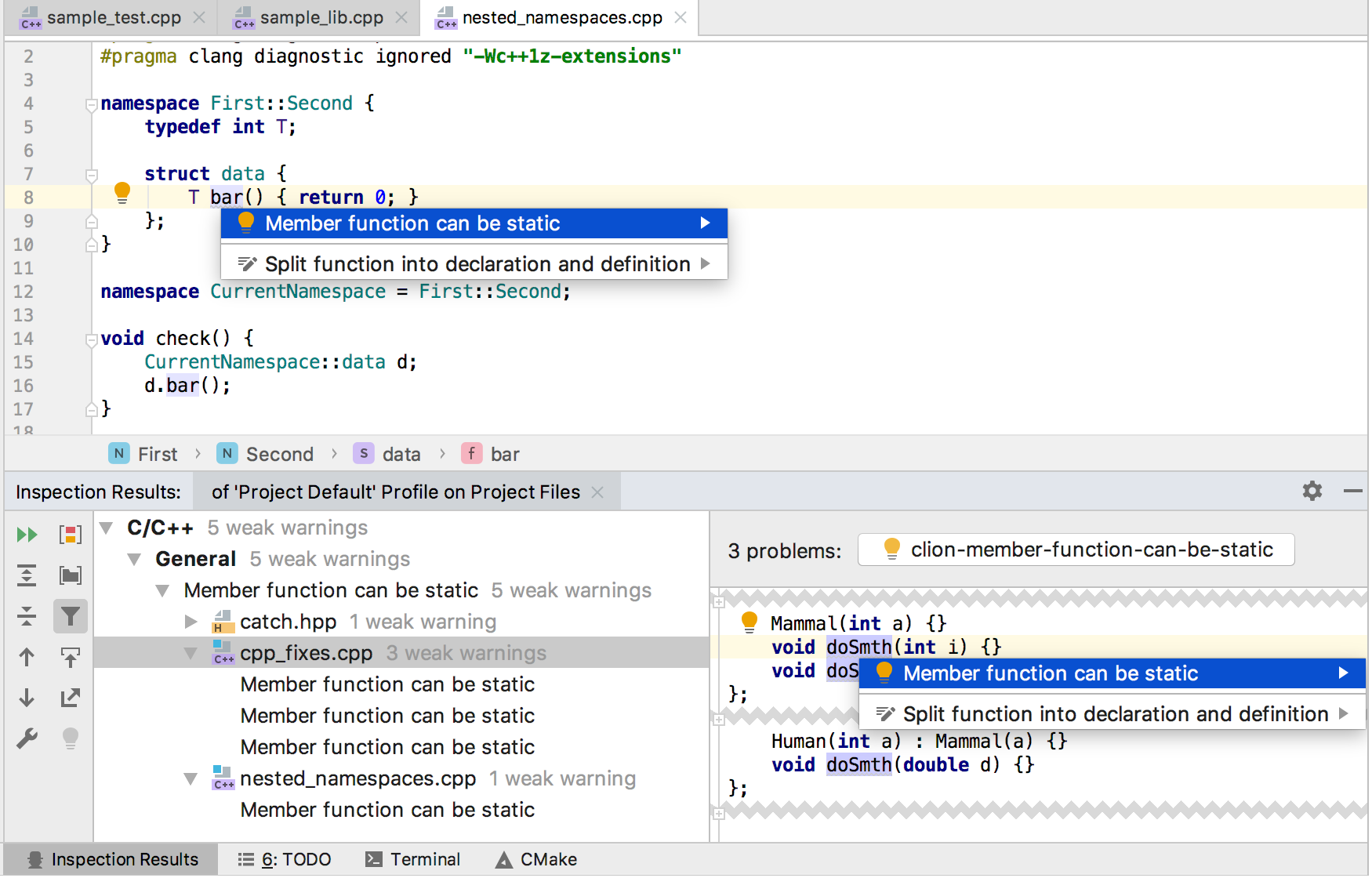Inspection in Detail: Member Function Can Be Static
In C++ code, a member function can be marked as static when it does not use this or access any non-static class data, for example:
class Object {
static int x;
public:
int getX() {
return x;
}
} The Member Function Can Be Static (MFCBS) inspection finds functions like int getX() and suggests to make them static. Turning a member function into static when possible is beneficial because static functions are cheaper in terms of CPU cycles and memory: no instance creation is required for a function call, and there is no need to push this onto the function stack.
This inspection is turned on by default when the Clangd-based language engine is enabled and has the default severity of Weak warning. You can configure its severity and scope, or disable the inspection, in the Inspection settings dialog (C/C++ category, General node).
As well as for other inspections, quick-fixes are available for MFСBS both from the editor and from the list of inspection results: 
The inspection is disabled for functions that contain incorrect or incomplete (red) code. Also, the inspection will not suggest making a member function static when:
It accesses a non-static class member or calls a non-static function, for example:
class S { int a; int foo() { return dbl_a(); } int dbl_a() { return (a+a); } };It depends on a template that cannot be statically resolved (https://youtrack.jetbrains.com/issue/CPP-14269 ?): если присутствует зависимость от шаблона, которая не может быть разрешена на этапе анализа тела функции
struct A { template <typename T = A> int foo() { return T::boo(); } int boo() { return 11; } };It is marked as virtual, const, or volatile.
It has ref-qualifiers, like
void f() &orvoid g() &&.It is a constructor, destructor, or an overloaded operator (including conversion operators like
operator int()).
For all other cases, the inspection processes any code where static can be applicable to a member function, including templates and template specializations (NOT READY https://youtrack.jetbrains.com/issue/CPP-14269): /screenshot/